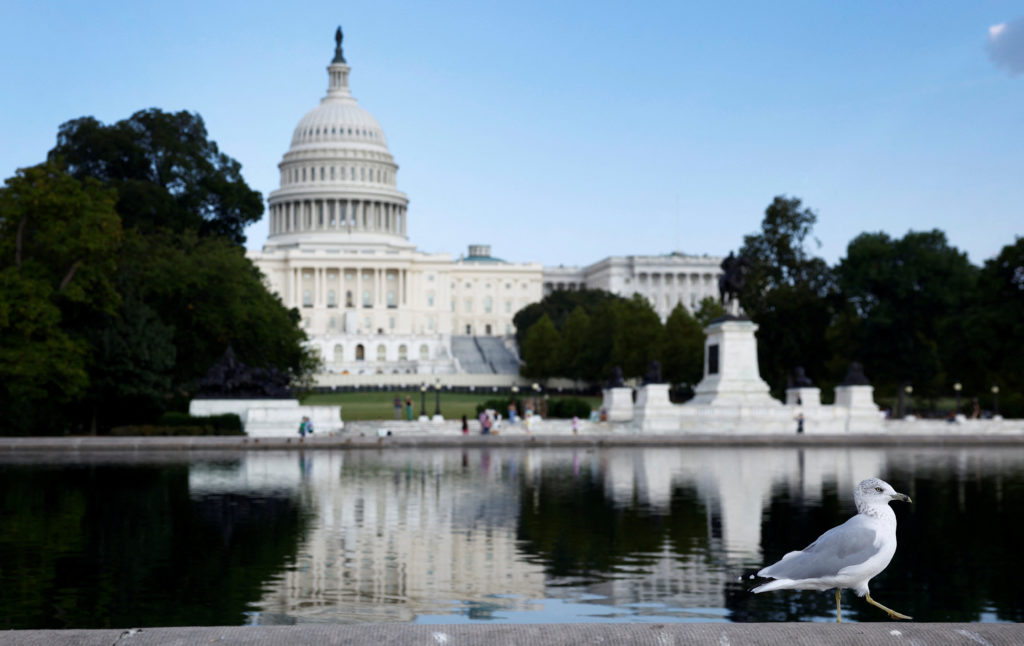with leadership agreeing to extend funding into mid-December. That gives the current Congress the ability to fashion a full-year spending bill after the Nov. 5 election, rather than push that responsibility to the next Congress and president.
Well, that’s not good. Expect a shutdown if the GOP loses the presidency.
They are going to have a government shutdown for Christmas and the first week of the new year? You won’t even be able to tell because everyone is on vacation then anyway.
Actually there’d be quite a few unhappy families as paycheques get delayed over the holidays for those working as civil servants, in military, etc. As far as I know that’s only happened twice - in the 1995-1996 winter holidays and the 2018-2019 winter holidays.
And of course it’d start to get felt more generally if a resolution doesn’t come in early January, and could cast a pall over the inauguration.
Quite coincidentally, the one in 1996 ended on Jan 6, 1996. Makes me wonder what will happen on Jan 6, 2025 if the shutdown continues - who pays for the National Guard folks, Capitol police officers, and so on?
Makes me wonder what will happen on Jan 6, 2025 if the shutdown continues - who pays for the National Guard folks, Capitol police officers, and so on?
This is a really big, serious problem that I didn’t even think about at first. Holy shit. Dollars to donuts this was a major consideration in the timing.
All a clown show. Theater. Drama queens.
Or it gives the current congress the possibility of trying to fuck with the next congress if democrats flip the house and keep the senate.
If Republicans are planning to shut government and anger the public so that a new Democratic Congress can solve the problem immediately after they take over, thus earning the gratitude of all Americans… I’d call that a massive GOP self-own. So it’s definitely possible.
That is what you call intentionally trying to cause chaos before the presidential transition. And nobody should accept it.
could we do less. yup. do we want to do less. yup. do we want the government to function. nope. especially when are advasary is running the administration. so why do we do it. because we are experts at how far we can push you all till you might actually not vote for us despite the scarecrows we put around to keep you in place.
PBS News Hour - News Source Context (Click to view Full Report)
Information for PBS News Hour:
MBFC: Left-Center - Credibility: High - Factual Reporting: Mostly Factual - United States of America
Wikipedia about this sourceSearch topics on Ground.News
Manufacturing Consent has this to say about PBS:
Globalization, along with deregulation and national budgetary pressures, has also helped reduce the importance of noncommercial media in country after country. This has been especially important in Europe and Asia, where public broadcasting systems were dominant (in contrast with the United States and Latin America). The financial pressures on public broadcasters has forced them to shrink or emulate the commercial systems in fund~raising and programming, and some have been fully commercialized by policy change or privatization. The global balance of power has shifted decisively toward commercial systems.
James Ledbetter points out that in the United States, under incessant right-wing political pressure and financial stringency, “the 90s have seen a tidal wave of commercialism overtake public broadcasting,” with public broadcasters" rushing as fast as they can to merge their services with those offered by commercial networks." And in the process of what Ledbetter calls the “mailing” of public broadcasting, its already modest differences from the commercial networks have almost disappeared. Most important, in their programming “they share either the avoidance or the defanging of contemporary political controversy, the kind that would bring trouble from powerful patrons.”




